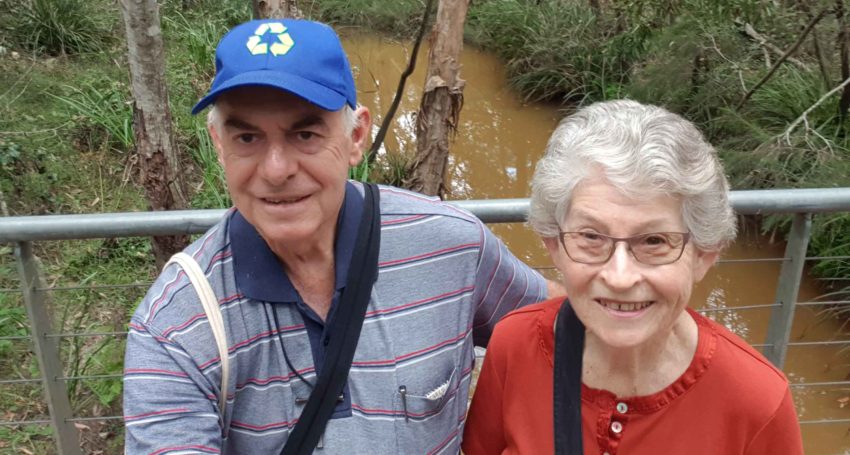Recent lessons for a long-term legacy
Features
“We are all in this together and each person’s environmental contribution is important. Our personal choices alone may not seem important, but added to the collective impact of others they have significant influence – the response of individuals globally to COVID-19 has clearly demonstrated this,” says Fr Peter Moore, Chair of Angligreen

My wife, Alison, and I enjoy walking together in the late afternoon along Blunder Creek on Brisbane’s southside. We watch the wildlife on our local pond, listen to the different birds calling and greet others walking alone or with dogs, or riding bikes or scooters. Due to the limitations around how far people can travel from their homes in order to keep our communities well and safe, more people seem to be enjoying our local creek of late.
COVID-19 has touched us all, with more people working and studying from home and exercising and recreating closer to where they live.
One of the things we have noticed on our daily walks is that there is much less litter in and around the creek. There have been some environmental improvements on a global scale, too. Air and water quality have dramatically improved in many areas that have implemented shutdowns. Emissions have dropped, and worldwide, the demand for coal and oil is lower than it has been in a long time – due in large part to the decline in the transport sector and the slowdown of the manufacturing sector.
Reports of animals coming out to breed and play while humans are sheltering in their homes are being celebrated, and the issue of the illegal wildlife trade has been highlighted.
However, we need to be careful about extrapolating these benefits or claiming a long-term environmental win. The current situation is not sustainable and a balance needs to be sought. Industries which have temporarily closed need to start again, while we also harness opportunities to reset our environmental future.
Advertisement
One of the many things the COVID-19 situation has taught us is to believe in science and follow the advice of scientific experts. The effects of climate change have demonstrated the consequences of ignoring such advice or acting too slowly.
We have also witnessed the willingness of many people to collectively change their habits for the greater good of a shared humanity.
Many are meeting their neighbours for the first time by reaching out to people in high-risk demographics to ensure they are able to access groceries and pharmaceutical items. This is helping to build stronger communities.
Business practices have changed on a large scale to allow people to connect remotely with colleagues, clients and other stakeholders. Conferences and large-scale meetings are being held online. The resulting reduced traffic on our roads saves workers time and mitigates environmental impacts.
As we are seeing the short-term environmental benefits of current COVID-19 limitations, the situation also presents an opportunity to plan Australia’s low or zero net emissions future, as discussed by the University of Melbourne’s Dr Laura Schuijers.
Advertisement
How can we rebuild our society and our economy in a more sustainable way ‘to safeguard the integrity of creation, and sustain and renew the life of the earth’, as the Anglican Communion’s Marks of Mission call us to do? How can we get reliable information to guide the choices we make and the choices we want our leaders to make? Climate Feedback and Skeptical Science are useful sites to assess the accuracy of Climate Change information.
We are all in this together and each person’s environmental contribution is important. Our personal choices alone may not seem important, but added to the collective impact of others they have significant influence – the response of individuals globally to COVID-19 has clearly demonstrated this.
We can also influence others by talk with them and sharing stories. We can influence leaders through engaging them, such as by phoning and emailing their offices and meeting with them, and through the way we vote in elections.
Together we can build a better future. We just need to apply the same collective approach based on what is best for the common good, as we have done in response to flatten the COVID-19 curve, albeit in a long-term manner.
By doing so, we can leave a legacy to our children, grandchildren and great grandchildren that we can be proud of.
To stay up to date with Angligreen news, subscribe to the Angligreen eNewsletter.






